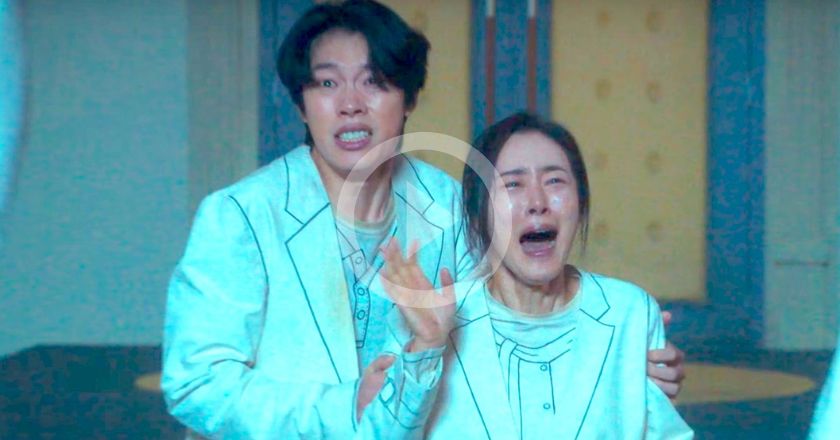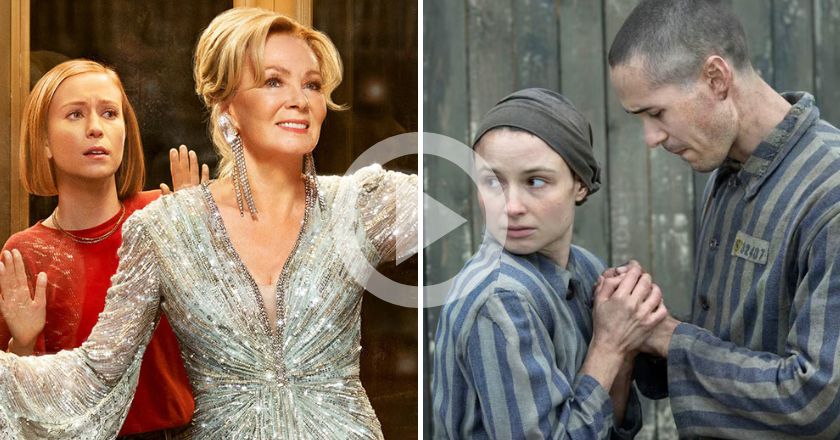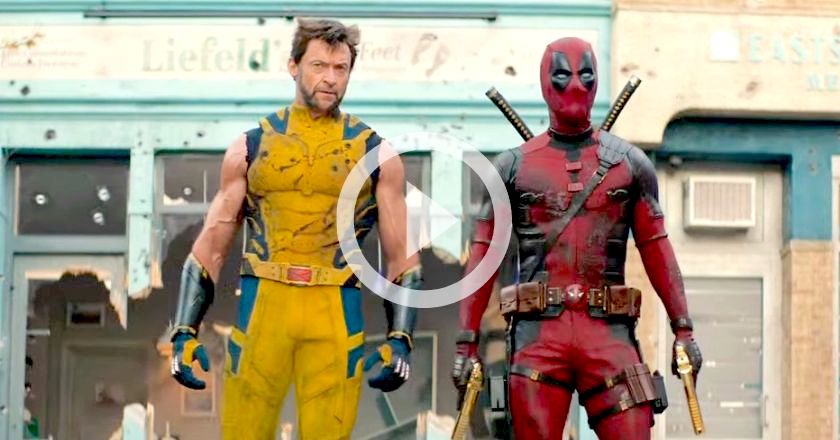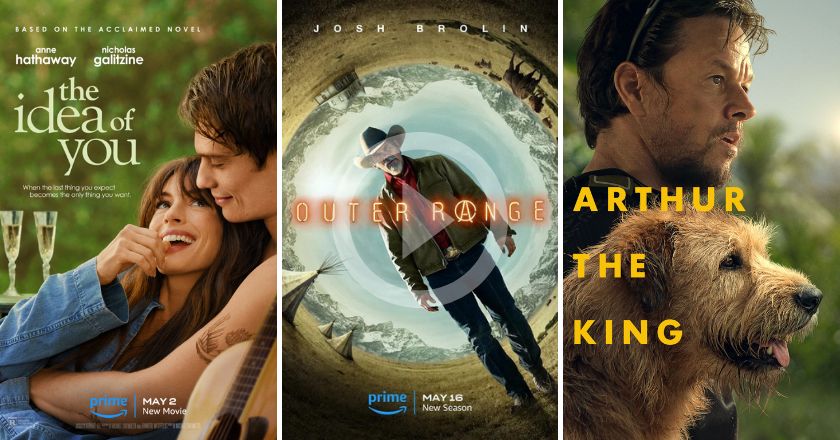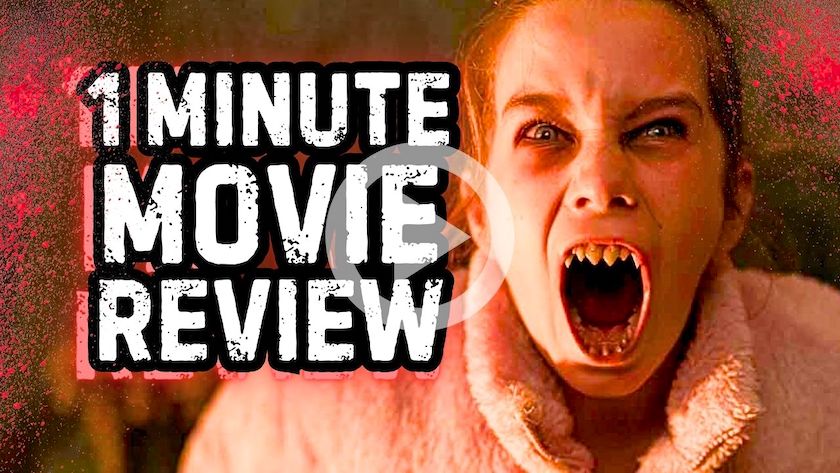
Mabrouk El Mechri’s JCVD, the initials of Jean-Claude Van Damme, sees the “Muscles from Brussels“ play ‘himself’ as a washed up actor battling his ups and downs with stardom. This battle with fame is not completely Van Damme’s fault; it’s the town’s admiration. JCVD, you see, is set in Brussels, Van Damme’s place of birth.
JCVD opens in a ridiculous action sequence. It is endless, funny and OTT. Then the cheeky faux documentary style shows a (slightly different) on and off stage Van Damme, it’s all very Meta and clever. Using a well-known or faded actor struggling to find a balance between reality and art is not new, as seen in titles like All About Eve (Joseph L. Mankiewicz, 1950), Last Action Hero (John McTiernan, 1993) and The Wrestler (Darren Aronofsky, 2008). While those films saw varying degrees of success, those directors certainly chose the right actors ““ at the right points of their careers – to appear in these titles.
Watching JCVD the other day for the first time, the reminders of Alejandro González Iñárritu’s acclaimed Best Picture winner Birdman: Or (The Unexpected Virtue of Ignorance) were simply too much to ignore. Another film to use an aging actor and dealing with downright similar themes, hints of plagiarism crept up constantly. There’s even a character running in a busy street scene wearing a pair of unflattering briefs.

In JCVD, the story revolves around Van Damme caught up in a post office heist. The real bad guys pretend Van Damme is the gunman, knowing that he will attract the right attention for their money needs. As opposed to Michael Keaton, in a play. Keaton plays Riggan, once famous for playing the superhero Birdman (as everyone knows, really a metaphor for when he played Batman), as he turns to Broadway to prove a point. While these situations are different, ultimately they force each character to comply and fight their inner weaknesses, perhaps even in real life too.
It is apparent these characters or actors playing themselves have similar issues. In JCVD, prior to the heist, we learn about a sensitive-but-ready-to-explode Van Damme. He’s battling custody of his daughter, who tells him of her embarrassment having a kick-boxer dad. He’s older and Steven Seagal is (still) getting better roles than him. In the same way, Riggan is jealous of his younger co-star Edward Norton (Mike), a method actor. Riggan has an ex-wife and non-existent relationship with his daughter Samantha (Emma Stone).
The direction and cinematography work is clearly different, but they elevate similar emotions. JCVD belongs to a film world. Hostages are injured, gunshots fired and the media are having a field day, but its shaky camera does add realness and embodiment to the proceedings. Birdman uses a behind-the-scenes, seemingly one take approach. It uses a constantly-moving camera to dart in and out of the chaos and tensions of putting on a show. In both circumstances, the viewer is drawn into these situations but also made aware of the filmmaking style. Similarly, jazz musicians Gast Waltzing (JCVD) and Antonio Sanchez (Birdman) heighten the tension with a sporadic jazz score pointing to the medium itself.

JCVD and Birdman really do blur the lines between on and off-screen personas and even the film worlds themselves. However, what really makes JCVD better, is Van Damme’s charm. Van Damme, in the nicest possible way, is ultimately more tragic. It just so happens, being a celebrity puts him in a worse off situation, both in the film’s setting and, one could say, his current career path.
Another key thing that JCVD does better is authenticity. During Van Damme’s impressive, emotional, levitating monologue, he gives us his thoughts on his career and personal life. There’s the right amount of darkness and honesty here. Looking directly down the lens, Van Damme says, “I truly believe it’s not a movie. It’s real life. Real life.” And the tears roll. Van Damme has found redemption and solace. On the other hand, Birdman (surprise!) has many levitating scenes, highlighting Riggan’s ego and inner demons, but there isn’t enough redemption and there’s simply too much brashness to warrant this, or at least make it more authentic.
It should be said; I did enjoy Birdman, but mostly for its experiential qualities. There were things I liked, and things I didn’t, and I tended to talk up Ed Norton’s performance more than that of poor Keaton. But after seeing JCVD, I had to re-analyse Birdman; it is not very original. This is, of course, a personal deconstruction. I feel like Birdman received so much praise and hype for something that it didn’t do quite uniquely.
 – L.A.

